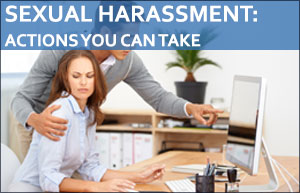SPEAK WITH A LAWYER TODAY
Can I Sue My Employer for Racial Discrimination?
Our legal team frequently handles cases involving racial discrimination in the workplace. If your employer has treated you unfairly due to your race, ethnicity, or skin color, you may have grounds to take legal action. The California Labor Law Employment Attorneys Group is dedicated to ensuring that employees who have suffered racial discrimination receive the compensation they deserve.
Laws prohibit employers from making employment decisions based on anything other than a worker’s qualifications and ability to perform their job. However, history shows that many individuals and businesses fail to comply with these standards. While most employers follow anti-discrimination laws, some still allow racial bias to influence their decisions. Employers cannot factor race into hiring, promotion, job assignments, or termination decisions. This also applies to job applicants—an employer cannot reject a candidate solely based on race.
Title VII of the Civil Rights Act of 1964 explicitly bans racial discrimination in the workplace. If you believe you have been discriminated against due to your race, you have the legal right to file a lawsuit against your employer. We regularly assist clients who have been victims of race-based discrimination and answer common questions such as:
- Can I take legal action against my employer for racial discrimination?
- Can I sue my supervisor for making racist comments?
- What steps should I take to sue my employer for racial bias?
- Where can I find reliable information about racial discrimination lawsuits?
- Who is the best attorney for a racial discrimination case?
What Qualifies as Racial Discrimination?
Racial discrimination in the workplace can take many forms. It may include unfair job assignments, biased promotions, or segregation of employees based on race. Discriminatory practices may also involve treating employees differently based on racial stereotypes or penalizing workers for associating with individuals of a different race.
Below are some examples of racial discrimination:
- A company only assigns white employees to sales positions, while Latino employees are confined to warehouse or restocking jobs.
- An employer refuses to promote a worker because they are married to someone of Middle Eastern descent.
- A trucking company refuses to hire Asian drivers based on false stereotypes about driving ability.
The Civil Rights Act prohibits racial harassment as well. Employers are responsible for maintaining a work environment free from racist jokes, threats, or derogatory comments. If a manager, coworker, or company policy fosters an atmosphere of racial hostility, affected employees may have the right to take legal action.
Understanding Workplace Discrimination Based on Race
Racial discrimination occurs when employment decisions are based on an individual’s race rather than their skills or experience. Employers must not create or enforce policies that unfairly disadvantage workers of a specific racial group. In employment law, racial discrimination is classified into two categories: disparate treatment and disparate impact.
Disparate Treatment Discrimination:
This type of discrimination occurs when an employer intentionally treats employees or applicants differently based on race. For instance:
- A company only requires employees of a certain race to undergo drug testing.
- A manager consistently promotes white employees while passing over more qualified employees of color.
- Employees of a certain ethnicity are prevented from interacting with customers.
Disparate Impact Discrimination:
In some cases, an employer’s seemingly neutral policy disproportionately affects employees of a specific racial background. Even if the policy is not intended to be discriminatory, it may still be illegal. Examples include:
- Implementing a height requirement that disproportionately excludes Latino and Asian applicants.
- Refusing to hire individuals with criminal records, which disproportionately impacts Black and Latino workers.
- Enforcing a grooming policy that bans natural hairstyles commonly worn by Black employees.
Workplace Harassment Is Illegal
Racially charged remarks or behaviors in the workplace can constitute harassment. Employers must prevent and address harassment to ensure that all employees feel safe and respected. If an employer allows a hostile work environment to persist, affected employees may have the right to file a lawsuit.
How Can I Prove Racial Discrimination?
One of the strongest forms of evidence in a racial discrimination case is direct proof. If an employer openly admits to making employment decisions based on race, this can serve as irrefutable evidence. For example, if a manager states, “We do not promote people of your race,” that is clear-cut proof of illegal discrimination.
However, many employers understand that racial discrimination is unlawful and avoid making explicit statements. In such cases, employees may need to gather indirect evidence to build a case. This is known as a prima facie case of discrimination, meaning that the evidence strongly suggests that racial bias occurred.
To establish a prima facie case, an employee must prove the following:
- They were qualified for their job and performed their duties adequately.
- They were denied an employment benefit (such as a promotion) that was available to others in their position.
- They belong to a protected racial group.
- The employer granted the opportunity to someone of a different race or continued searching for applicants.
For example, if a Black employee was overlooked for a promotion despite being the most qualified candidate and the position was given to a less-experienced white employee, they may have a case for racial discrimination. Employers often attempt to justify these decisions by citing non-discriminatory reasons. Employees must present evidence—such as performance reviews, internal emails, or witness statements—to demonstrate that race was a factor in the decision.
Free Consultation and No Upfront Fees
If you have experienced racial discrimination at work, contact the California Labor Law Employment Attorneys Group to discuss your legal options. Our attorneys are committed to ensuring that justice is served and that you receive the compensation you are entitled to.
We offer a free consultation to evaluate your case. Additionally, we provide a zero-fee guarantee, meaning you will not pay any legal fees unless we win your case. Our firm works on a contingency basis, so there is no financial risk to you—if we do not secure compensation, you owe us nothing.
Contact us today to learn how we can help.
Client Testimonial
“This can be a difficult world, and it is reassuring to have attorneys like Daniel who fight for justice when employees face discrimination. Daniel is one of the best employment lawyers out there, and I highly recommend him.”
– Hoagland Stubbs
Client Review
“This can be an ugly world and it is nice knowing lawyers such as Daniel to help people right a wrong when they have suffered at the hands of their employer. Daniel is one of the good guys out there and I strongly recommend his skills as an employment lawyer.”
– Hoagland Stubbs

100% FREE CASE CONSULTATION

OUR Guarantee
Pay NO FEES until we win your Employment case.

Client Review
California Labor Law Employment Attorneys Group
5 out of 5
This can be an ugly world and it is nice knowing lawyers such as Daniel to help people right a wrong when they have suffered at the hands of their employer. Daniel is one of the good guys out there and I strongly recommend his skills as an employment lawyer.
– Hoagland Stubbs